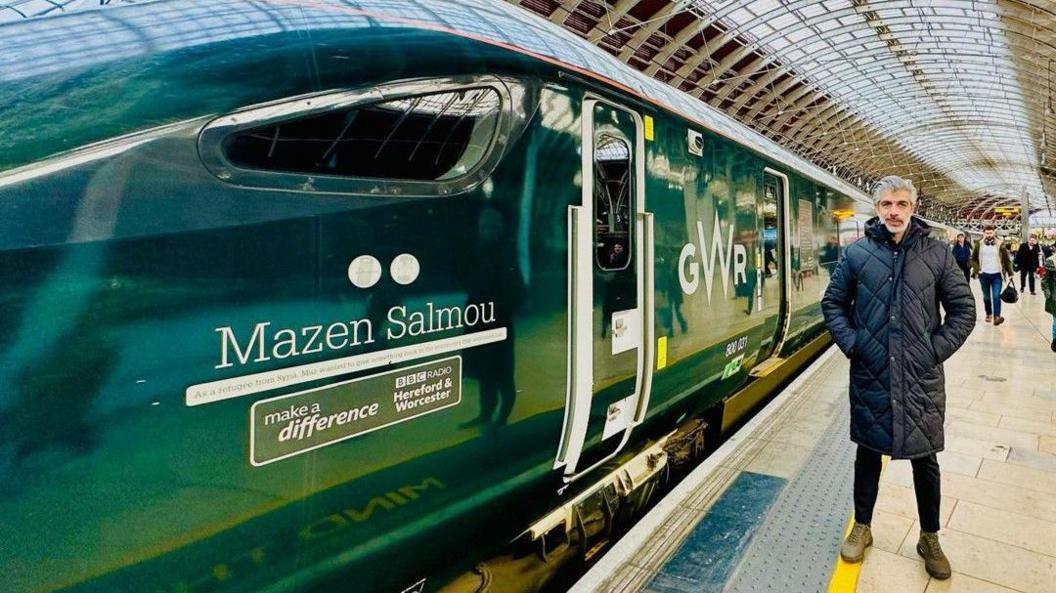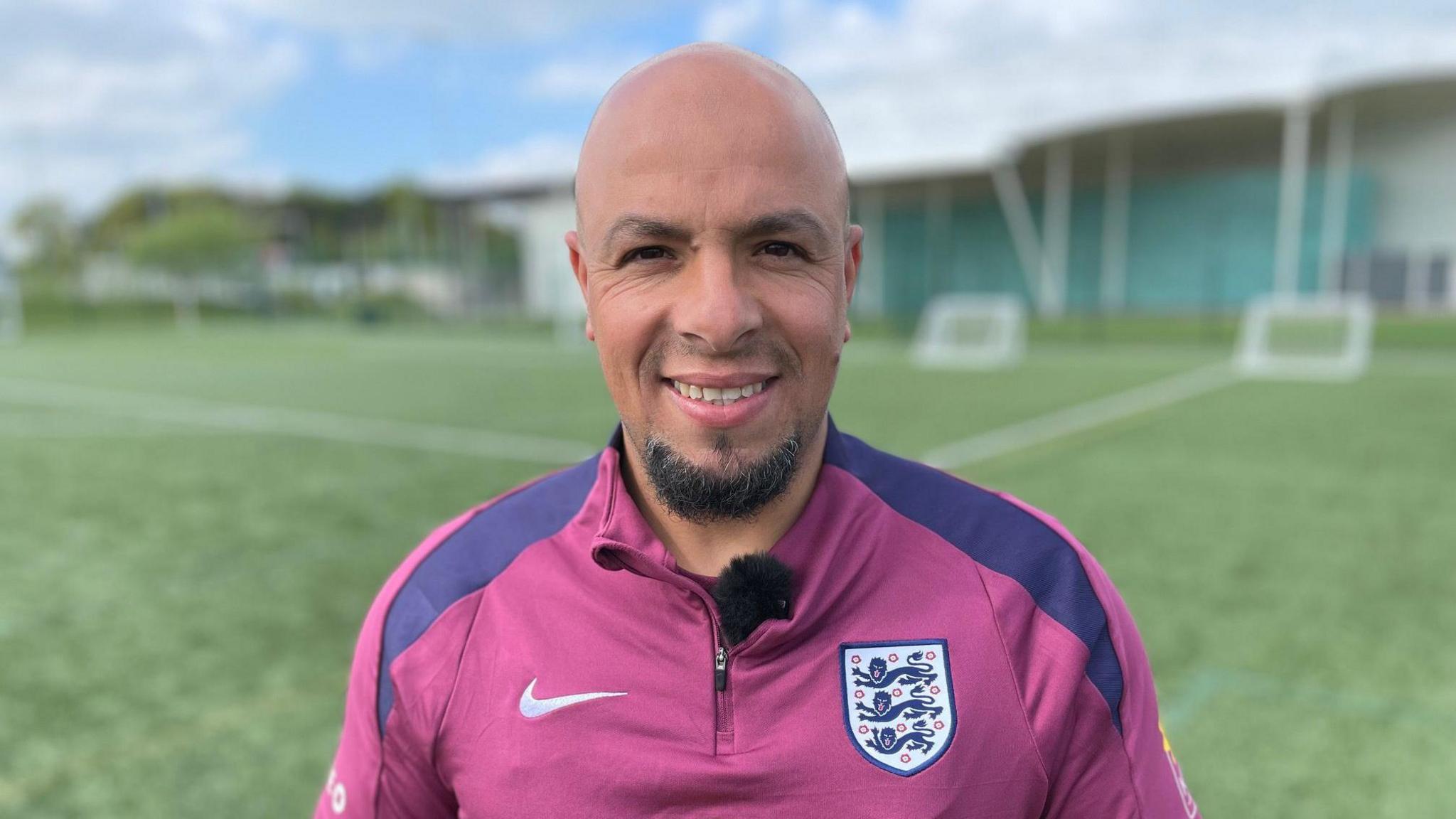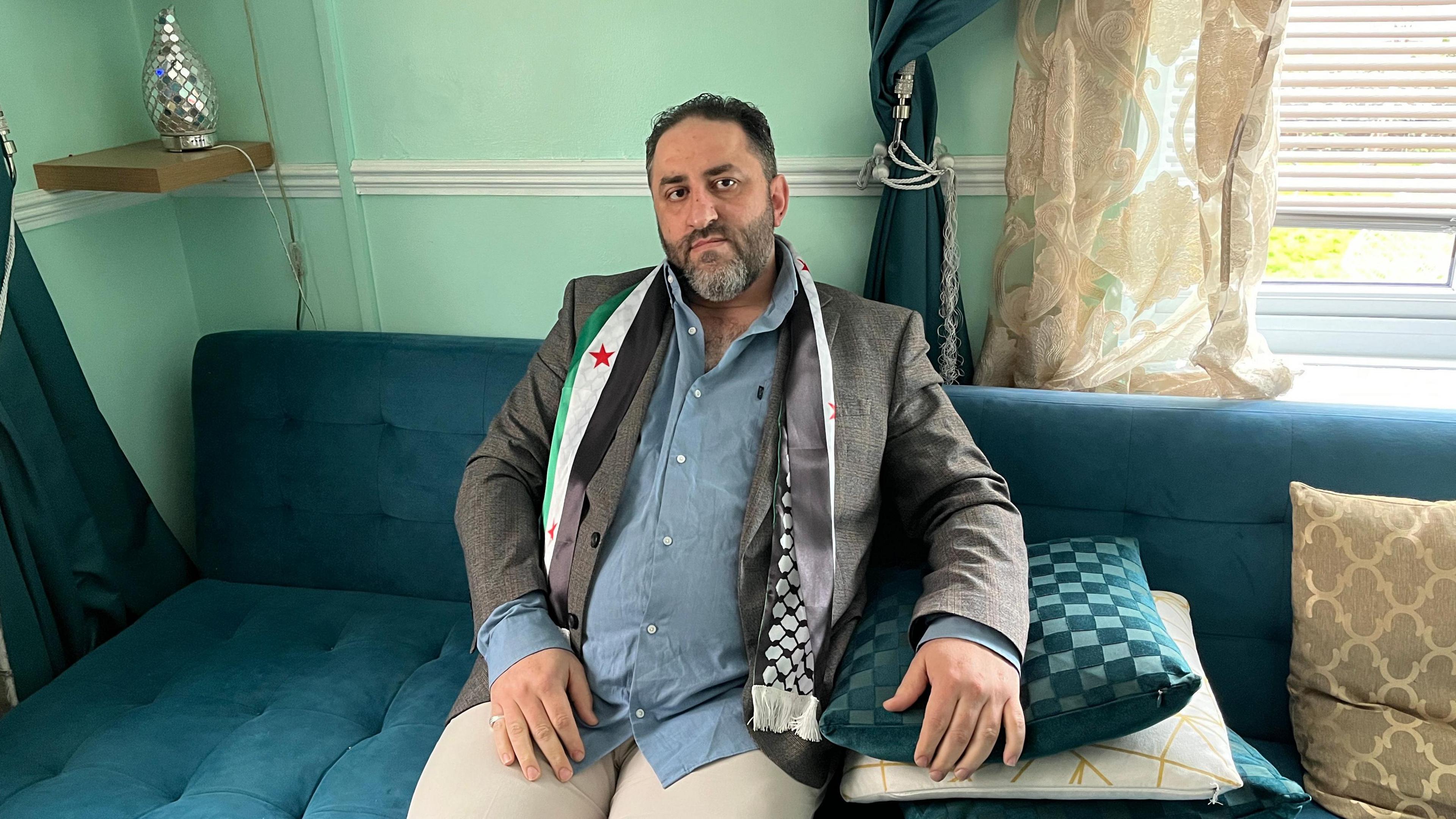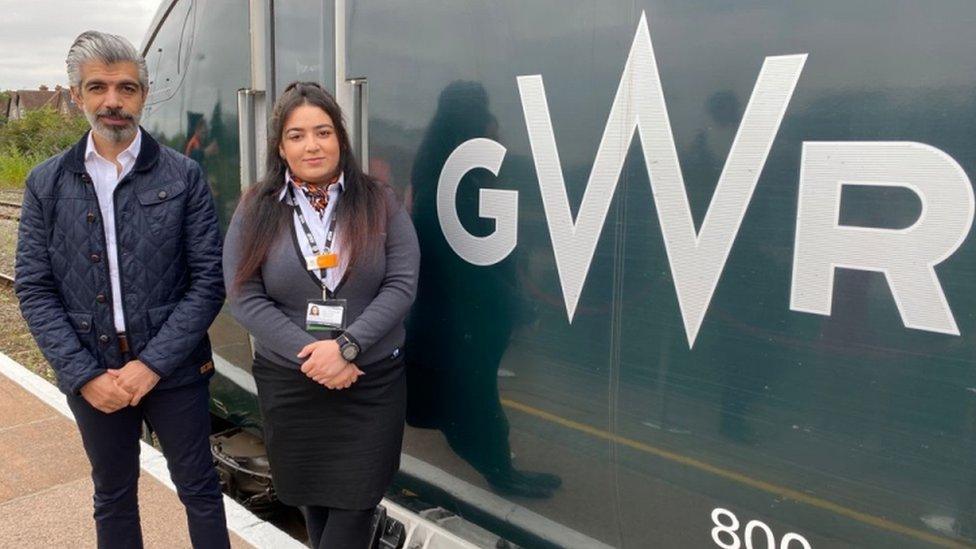Refugee tells students 'you can achieve everything' as he qualifies as teacher

A train was named after Mazen Salmou for his services to the community during the Covid pandemic
- Published
A Syrian man who moved to the UK as a refugee has gone from being unable to speak English to qualifying as a teacher and said he wanted his story to inspire students.
Maz Salmou, who arrived in Worcestershire in 2019 with no money, said his personal safety was in danger in his home country, with the move facilitated under the United Nations resettlement programme.
The following year, a train was named after him for services to the community in the UK during the Covid pandemic, under a scheme run by Great Western Railway in conjunction with BBC Local Radio.
Now, Mr Salmou is set to graduate on Thursday with a PGCE in secondary education.
He said that following his arrival in the UK he had set three goals - improving his English, pursuing higher education after coming with a degree in fine arts and "trying to give something back".
'Really caring people'
"I would like to take this opportunity to thank the British government and also British people, in particular Bromsgrove, people of Bromsgrove... for giving me the chance to live and settle in this country," he said.
"I was trying to give something back, getting about in voluntary work. I was delivering medicines to elderly people in Bromsgrove, my neighbours as well."
Asked about studying at the University of Worcester, Mr Salmou admitted it had been a tough course.
"The truth must be told. Without my tutors' and lecturers' support I couldn't have done it.
"They did [a] really excellent job. They were not just experts. They were really caring people."
The Worcestershire resident said he had focused on three or four main areas in terms of his TikTok contributions.
'Give my knowledge'
He added these were "studying in the UK and the value of a British degree, improving skills [and] getting involved in voluntary work, encouraging young people and families to take part in the community".
"This is what I did actually when I came to the UK. So I'm trying to tell them 'OK, I did this, you can'."
Asked what the future holds, he said: "I'm trying my best actually to give some of my experience, my knowledge to [the] younger generation.
"I was telling my students at schools when I was delivering lessons, 'Look guys, I came here with no English, now I'm teaching you English, so you could do everything you want.... just push yourself'."
He added he would now also focus on doing a PhD and probably write a book.
Get in touch
Tell us which stories we should cover in Hereford & Worcester
Follow BBC Hereford & Worcester on BBC Sounds, Facebook, external, X, external and Instagram, external.
Related topics
- Published14 July

- Published1 May

- Published10 April

- Published25 August 2021
